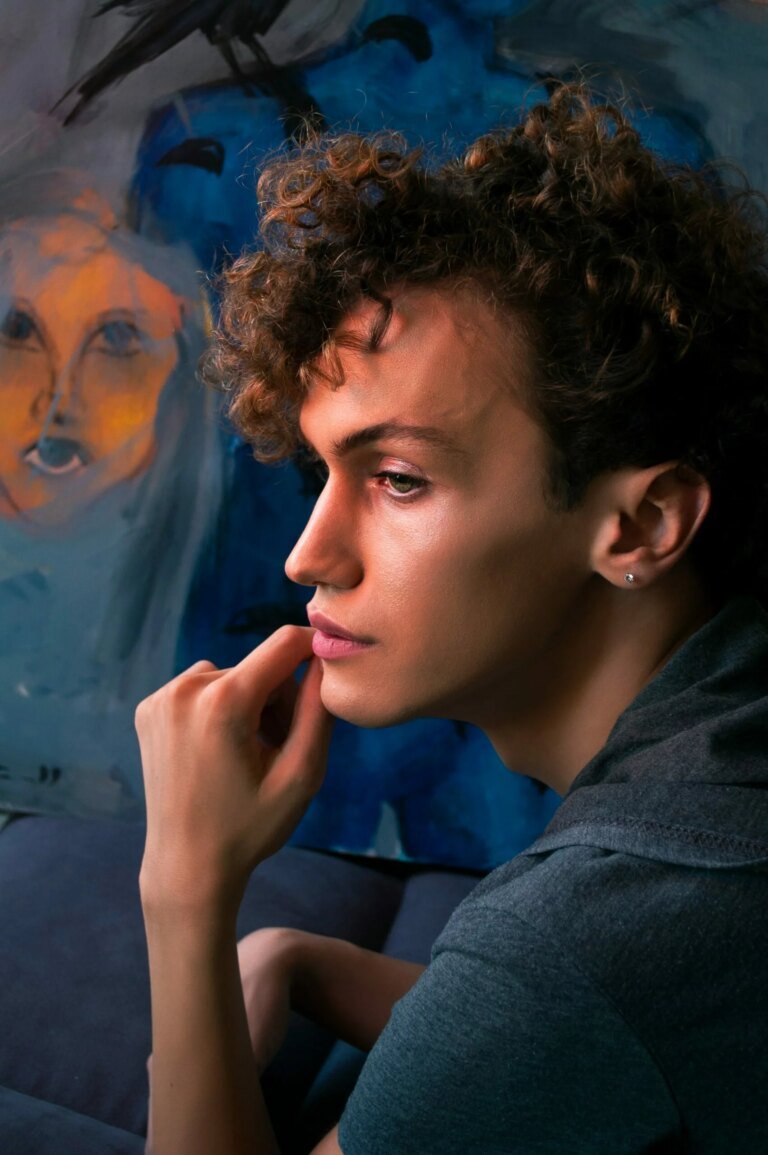1. Get support from the LGBT+ community
It can feel lonely to be LGBT+, especially if you haven’t made contact with anyone or if you don’t have friends who are also LGBT+. It can be really helpful to make friends with people who are also in the LGBT+ community so you can talk about the challenges you face. You are not alone and talking to others with shared experiences can provide you with a support network.
Without the exposure I’ve had online to people like me, I’m not sure where or who I’d be, except I wouldn’t be as happy and comfortable with my body and mind.
Lois, 19, she/they
Where to find LGBT+ friends
- University social groups
- Online communities
- Local events and support groups – pride events, book clubs, sports teams or create your own.
- Volunteer for LGBT+ causes – a great way to help others in the community and meet other people.
- LGBT+ bars, restaurants or clubs
Be careful who you talk to online and what personal information you give out. If you have friends you talk to online, make sure you also have friends you can meet and chat with in person.
2. Reach out to support organizations
There are lots of organizations you can talk to if you’re struggling and they’re for the LGBT+ community.
Telling these people I had no social or family connection with how I felt helped me get used to talking about something I had denied and suppressed for three years
Pippa
LGBT+ support organizations you could go to:
3. Take care of your sexual health
Our mental health is closely related to our sexual and physical health. While you’re taking care of your mind, make sure you’re taking care of your body too. Get tested for STDs regularly, use contraception and condoms, and use PrEP if needed.
4. Learn how to manage negative news and social media content around the LGBT+ community
It can be upsetting to see negative news and opinions about LGBT+ people in the media. Here are some ways you can try to deal with these negative media:
It’s perfectly okay to feel angry, upset, disappointed or sad about what you see in the media or on social media about the LGBT+ community and some people’s views. Bottling up how these things make you feel can have a negative impact on your mental health. Allow yourself to feel whatever emotions you feel.
It’s okay to not be constantly informed about anything that negatively affects LGBT+ people. If watching or reading negative content is affecting your mental health, you need to take a break.
You may find yourself setting aside time each week to catch up on news that suits you, or you may need to unfollow social media accounts that constantly post about LGBT+ issues and anti-LGBT+ laws and protests, etc. health it’s ok to take a step back. You don’t need to be a 24/7 activist, and you’ll be at your best when you have to fight, if you’re not completely burnt out from doomscrolling.
There is a lot of negative content out there and we tend to focus more on the negative than the positive. Seeking our positive content that is inclusive, celebratory and affirming can help achieve balance. This could be social media content or movies and TV that celebrate queer love, like Heartstopper or I Kissed a Boy/I Kissed a Girl
Having an LGBT+ group or friend to talk to is very important. You’re not alone in feeling angry, frustrated, and upset, and having others around you who feel the same can help you share the load.
Doing something to help combat these narratives can be a really powerful way to make a difference and take back control and restore an element of hope. This can be something as simple as educating someone else about your experience, sharing something on social media, or supporting LGBT+ causes. An action doesn’t have to be big to be effective.
Surround yourself with people who support you, validate you and your identity. Be kind to yourself and remember how valid your identity is.
